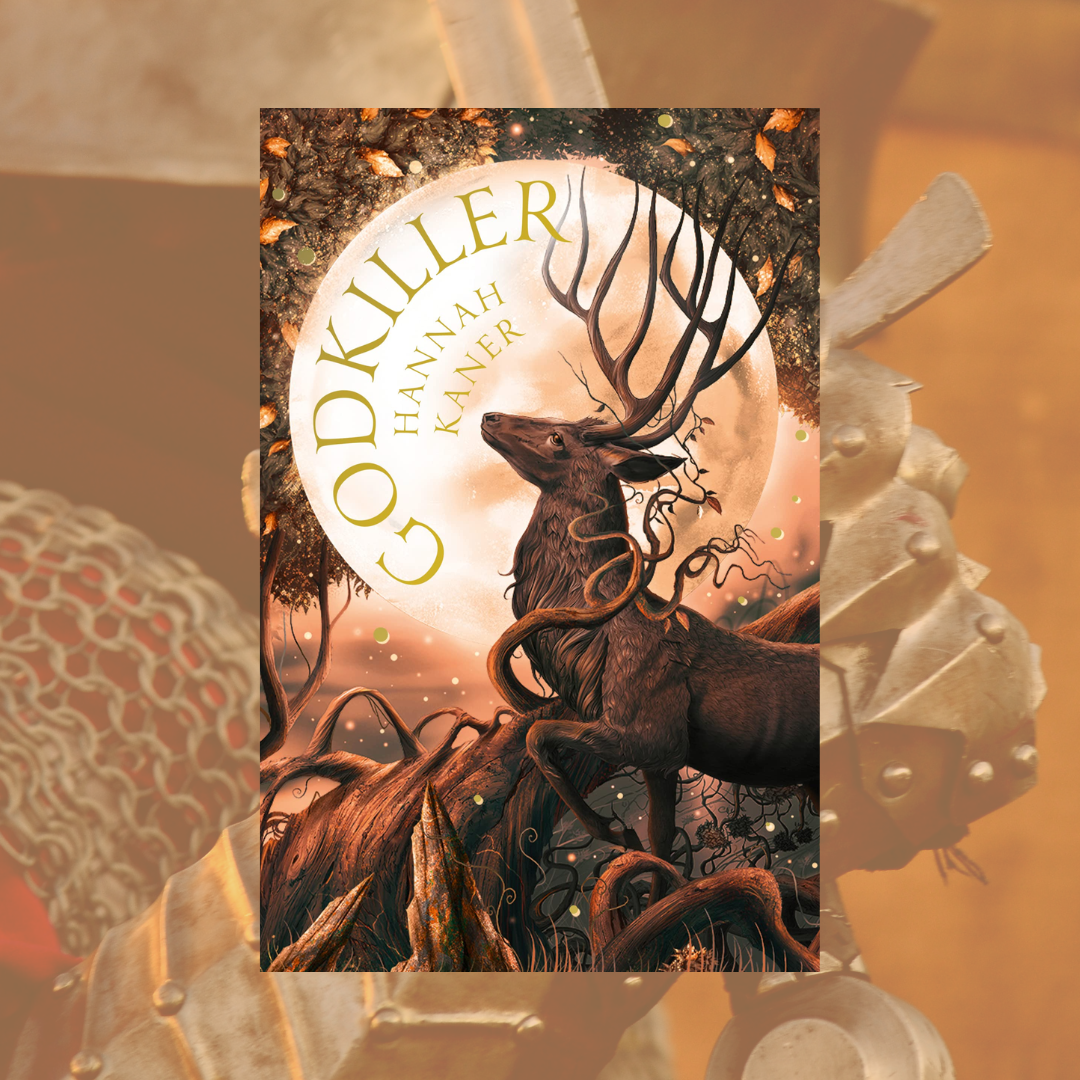Spoiler-Free Review
Godkiller was one that I might not have picked up had it not been in one of my monthly book boxes, so I’m glad that gave me the opportunity to branch out from my usual reads. If knights, quests, and queernorm worlds are your jam, then you’ll like this one.
For my review of book 2, click below:
- Book 2: Sunbringer
What’s Godkiller about?
Kissen, a god-killing mercenary, is saddled with a young noble girl who inexplicably has a small god tethered to her soul. Joined by a disillusioned former-knight-turned-baker, the unlikely group must travel to a ruined city where the last of the wild gods reside.
I liked it, but didn’t love it.
There were things I liked about this one, and it’s by no means a bad book. I think many readers will love it. The characters and worldbuilding were this story’s strengths, but I feel the slow plot kept it from truly shining.
The concept of gods only existing because humans believe in and pray to them is brilliant, and exactly what I mean when I say the worldbuilding stood out. In this world, gods have their own motivations and desires, often at the expense of humans, which led to the story’s current era of outlawed god worship. Not only that, mercenaries like our main character get paid to kill rogue gods.
So it’s with this in mind that we meet Inara, a young girl with a god problem. And that problem is that a god is tethered to her, and removal seems impossible. The girl and the god can hardly move a short distance away from each other without extreme pain. A god problem in a world where gods are outlawed, and the low likelihood of anyone caring to spare the girl’s life, made this conundrum interesting to follow.
As far main characters go, I really enjoyed Kissen. She has a compelling backstory, and is missing a leg. We get some great disability rep here (and bisexual rep, but I digress). While Kissen is no-nonsense and straightforward, Inara is a bullheaded, stubborn little thing. When she asks the godkiller for help, the two have such an entertaining dynamic. I’m a sucker for plots that force a rough hewn adult to care for a child who gives them a run for their money.
Speaking of characters, there’s a third POV in the character of Elogast, a former knight who is on a quest of his own. I thought he was well-defined and distinct, but he was my least favorite of the POVs. Mostly because I felt his motivations unsatisfying, so I wasn’t invested in whether he would succeed. The final POV is Skedi, the god attached to Inara, which made for an interesting look into the thinking and values of the gods.
Now, I’ve mentioned before that I’m not a quest person, and this book didn’t dissuade me from that opinion. A large chunk of this story was spent on the road, getting from place to place, with various random encounters along the way. For some, this will be a point in its favor. For others, like me, it’s a point against. Listening on audio was the move for this reason; I think if I read it with my eyes, I would have found it too slow.
All this to say that while I didn’t necessarily love it, I did like it and will keep reading to see where it goes from here.
Should you read Godkiller?
If you like quest stories (thinking more in the LOTR direction) and high fantasy, you’ll probably love this. If you’re not as into quest stories, it might not be for you.
I would love to have you around! Subscribe below.
Check out some of my other recent blogs:








2 responses to “Godkiller (Book 1): A slower-paced quest story”
I like it when the title matches the story 🙂 And then….a god tethered to a girl(?) what a concept of a story.
It’s a unique one, for sure!